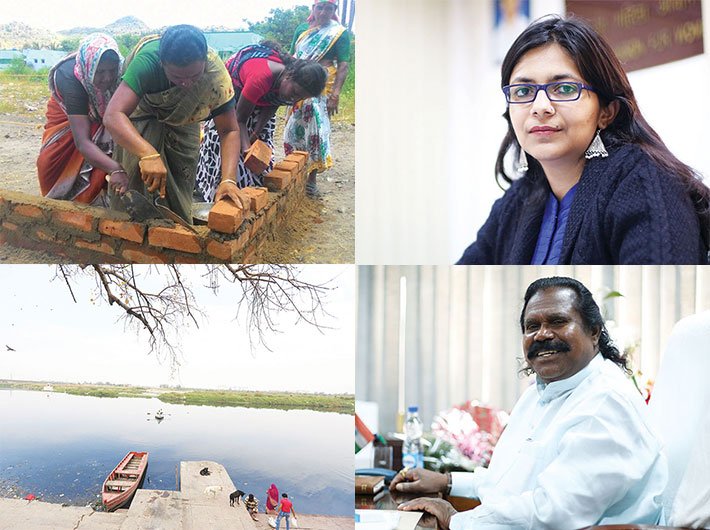We replug a list of five stories from our magazine that you must read over the weekend
At one time these pale rooms of the Delhi commission for women looked like sleepy corners of officialdom; they are now best described as a bustling sarkari office. The woman who transformed this moribund organisation hardly looks like a powerful leader. Dressed in casual blue jeans and loose denim shirt and wearing rectangular reading glasses, the 32-year-old Swati Maliwal can pass off as the girl next door. Maliwal, who came into prominence through Anna Hazare’s anti-corruption movement, lost no time in galvanising DCW into action after taking charge in July 2015. In 19 months, the commission has handled about 12,000 cases. In contrast, her predecessor, Barkha Singh Shukla, had dealt with 3,498 cases in eight years!
The Yamuna is considered holy. But over several decades, it has become so polluted; it no longer evokes the pristine images the puranas painted of it. Thinking of the Yamuna, in fact, brings to mind images of black water, expanses of white foam, dry stretches, pesticide-laden farms growing vegetables on the floodplains along Delhi, festivals that are a riot of gulaal, puja items and idols brought for immersion. The river is choking to death despite 22 years of monitoring by the supreme court and thousands of crores being spent on cleaning it. Some voluntary groups, however, have kept up a valiant fight. Among them is the Yamuna Jiye Abhiyaan, which has completed 10 years. Set up on February 7, 2007, this civil society campaign has carried out research and led campaigns to protect and rejuvenate the river.
When her husband died last year, 60-year-old Chakkamma was not sure whether she would be able to have some money of her own: she has a son who looks after her, but she wanted to maintain a degree of independence. Opportunity came knocking when the Tamil Nadu government, as part of its Pudhu Vaazhvu (or new livelihood) Project, funded by the World Bank, chose her Pulkattai village, some 60 km from Madurai, for training women in masonry. She had worked as a construction hand before, but that was unskilled work – fetching water, carrying bricks, or such odd jobs around the site. That would earn her about Rs 100 a day. But she knew she would be able to earn much more as a mason.
eVIN, short for ‘electronic vaccine intelligence network’, is a module-based technology for real-time tracking and monitoring of stock, location and storage temperature of vaccines to make sure the supply is safe and reliable. It’s an initiative of the ministry of health and family welfare, being implemented by the United Nations Development Programme (UNDP) with financial support from Gavi, a Geneva-based organisation that brings together the public and private sectors to take immunisation to children across the globe. Beginning October 2015, eVIN has been rolled out in 12 states: Assam, Bihar, Chhattisgarh, Gujarat, Himachal Pradesh, Jharkhand, Madhya Pradesh, Manipur, Nagaland, Odisha, Rajasthan and Uttar Pradesh.
Seasoned BJP parliamentarian Nand Kumar Sai, who took charge as the chairperson of the National Commission for Scheduled Tribes (NCST) on February 28, has his work cut out for him. Governance Now caught up with Sai, 71, on his first day in office where he spoke at length on a host of issues being faced by tribals. Sai, who was thrice elected to the Lok Sabha and twice to the Rajya Sabha, says tribals are not getting their reasonable share in government jobs and he intends to set that right. At least 10.4 crore people who fall in the scheduled tribe category are now banking on him.
